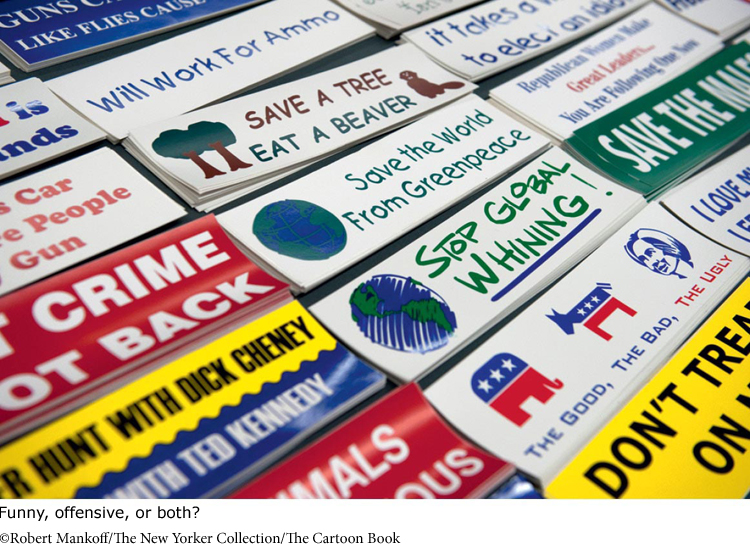Understanding Who Makes an Argument
Understanding Who Makes an Argument
Knowing who is claiming what is key to any rhetorical analysis. That’s why persuasive appeals usually have a name attached to them. Remember the statements included in TV ads during the last federal election: “Hello, I’m X — and I approve this ad”? Federal law requires such statements so we can tell the difference between ads a candidate endorses and ones sponsored by groups not even affiliated with the campaigns. Their interests and motives might be very different.
But knowing a name is just a starting place for analysis. You need to dig deeper, and you could do worse than to Google such people or groups to discover more about them. What else have they produced? Who publishes them: the Wall Street Journal, the blog The Daily Kos, or even a LiveJournal celebrity gossip site such as Oh No They Didn’t? Check out related Web sites for information about goals, policies, contributors, and funding.

RESPOND •
Describe a persuasive moment that you can recall from a speech, an editorial, an advertisement, a YouTube clip, or a blog posting. Or research one of the following famous persuasive moments and describe the circumstances — the historical situation, the issues at stake, the purpose of the argument — that make it so memorable.
Abraham Lincoln’s Gettysburg Address (1863)
Elizabeth Cady Stanton’s Declaration of Sentiments at the Seneca Falls Convention (1848)
Chief Tecumseh’s address to General William Henry Harrison (1810)
Winston Churchill’s radio addresses to the British people during World War II (1940)
Martin Luther King Jr.’s “Letter from Birmingham Jail” (1963)
Ronald Reagan’s tribute to the Challenger astronauts (1986)
Toni Morrison’s speech accepting the Nobel Prize (1993)
Will.i.am’s “Yes We Can” song/collage on YouTube (2008)